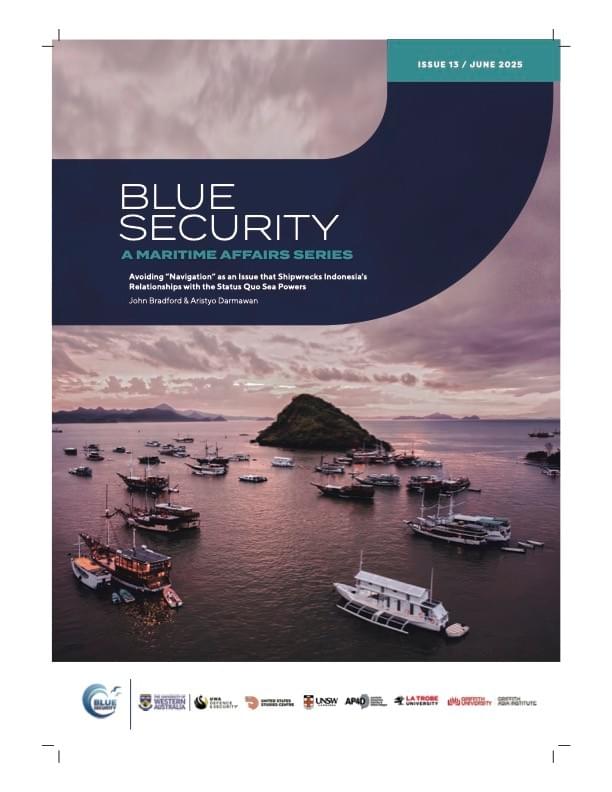On July 9th, 2025 (GRIPS) hosted a rich and historically grounded seminar exploring the evolution of Indonesia’s maritime policy and its strategic role in the Indo-Pacific. The event was anchored by Dr. Indra Alverdian, Assistant Professor at GRIP who delivered a detailed lecture on “Indonesia’s Maritime Policy: From Independence to 2019,” based on his doctoral research and published book. Dr. John Bradford, Executive Director of YCAPS, served as a discussant and the event was Dr. Narushige Michishita who is Executive Vice President and Professor at GRIPS as well as a YCAPS Director.
Dr. Indra Alverdian traced the evolution of maritime strategy across five historical periods, emphasizing the persistent influence of the foundational concept of Tanah Air the “land and water” unity that shapes Indonesian identity. Dr. Alverdian discussed how Indonesia’s maritime outlook has been shaped by its geography, political culture, and complex history, including the legacies of the Sriwijaya and Majapahit kingdoms. He analyzed the philosophical idea of Cakra Manggilingan or “tuning of the wheel” as a framework for understanding shifts in Indonesia’s maritime policy through time.
John Bradford praised Dr. Alverdian’s book as particularly important given the importance of strategic culture and foreign policy development process in determining Indonesia’s maritime policy. He noted that this is broadly understood by specialists but poorly documented and too often overlooked by officials in Indonesia’s partner nations. He described a recent report he co-authored with Australia National University Scholar Aristyo Darmawan, Avoiding ‘Navigation’ as an Issue that Shipwrecks Indonesia’s Relationships with the Status Quo Sea Powers. Published as a part of Blue Security: A Maritime Affairs Series, the paper analyzes the growing potential for friction between Indonesia and major maritime powers like Australia and the United States, driven by differing interpretations of maritime law—especially around issues pertaining freedom of navigation. While past disagreements have been managed at a technical level, emerging developments such as Indonesia’s enhanced maritime capabilities and strategic shifts may make future cooperation more difficult. Thus, improved understanding of the historical and cultural underpinnings of Indonesia’s maritime policy are key to navigating these emerging challenges.
